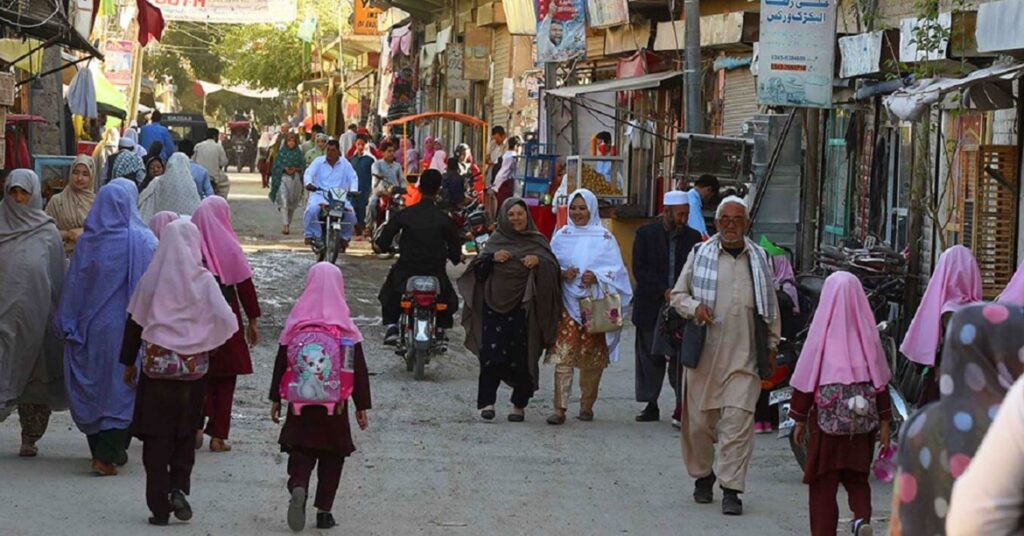By Meer Mehrab Khan
The global distribution of power seems in flux for the first time since the end of the Cold War. The epicenter of power is dramatically shifting from the Western Hemisphere to the Eastern in the wake of China’s unprecedented rise.

From 1979 to 2019, China’s annual GDP growth rate averaged 10 percent. Such an economic boost has allowed the country to spend more on military modernization and strategic development, sparking concerns in the United States about Beijing’s rise and its growing diplomatic and economic influence, and about Washington’s capability to counter it.
Currently, the greatest front is set not in Europe, but in the broader Asia-Pacific region, from where China’s sea lines of communications (SLOCs) stretches from the coastal areas of China to the Persian Gulf via the choke point of Malacca and Strait of Lombok. Almost half of China’s fuel passes through these critical lines; if blocked, Beijing will succumb to the demands of the adversaries. As an alternative to bypass the US-controlled Malacca strait, Beijing is investing in Pakistan’s Balochistan to not only shorten its route but also avoid any possible blockade from the adversaries in the high seas. Here lies the strategic importance of Balochistan, especially Gawadar.
China wants the flagship project of Belt and Road Initiative (BRI) – the China Pakistan Economic Corridor or famously known as CPEC – to thrive as it connects it with The Middle East, Central Asia and Europe. It will allow China to engage in productive trade and increase its economic power base. To the contrary, the US aims to curtail Beijing’s designs while destabilizing the CPEC, even with the help of militant organizations based in Balochistan. As a result, the effects of the competing demands of the great powers are bearing down on Balochistan.
The insurgency has got unseen pace, resentments are getting air and the local masses are losing confidence in the system. The national integration in Pakistan is turning fragile as the voices for separatism are growing, with foreign interference fueling local grievances.
To leverage positively from the strategic location of Balochistan and manage challenges emanating from great power competition, Pakistan has to proactively formulate a comprehensive policy framework to cope up with these challenges. It must include internal cohesion and foreign policy prudence.
First, economic independence lies at the heart of every strategy. The more economically sound a country is, the more it can assert itself independently. It will enable a state to acquire the needed tools to face the challenges, modernize its military and spend on its diplomatic missions. Pakistan has to prioritize economic growth and development.
Second, economic independence is the byproduct of political stability. Unified political spectrum, political consensus and stable civil-military relations can incentivize economic growth and development. To achieve economic efficiency, political stability is indispensable in Pakistan.
Third, great attention should be paid to the grievances of the local masses in Balochistan. The people of Balochistan and the main nationalist political parties are losing confidence in the system. The march of Dr. Mahrang Baloch and the resignation of Aktar Mengal from the National Assembly are alarming facts for the Federation. Balochistan’s underdevelopment must be recognized, otherwise, foreign powers will fish in Balochistan’s troubled waters.
To conclude, the rise of China has not only redefined global power dynamics but also brought Balochistan into the geopolitical spotlight. As China pushes forward with its Belt and Road Initiative, the region’s strategic significance has become increasingly pronounced. This evolving landscape demands a nuanced approach from Pakistan, balancing both internal and external pressures.
To secure its position amidst the shifting power balance, Pakistan must harness Balochistan’s potential while addressing deep-seated local issues. Strengthening internal cohesion and fostering economic development are essential for transforming Balochistan from a geopolitical flashpoint into a strategic asset. By adopting a proactive and inclusive strategy, Pakistan can better navigate the complexities of great power competition, ensuring that the region’s challenges are met with effective solutions that enhance both national stability and regional influence.
Author: Meer Mehrab Khan – Student of International Relation at University of Balochistan and independent researcher on global issues.
(The views expressed in this article belong only to the author and do not necessarily reflect the views of World Geostrategic Insights).
Image Credit: AFP







